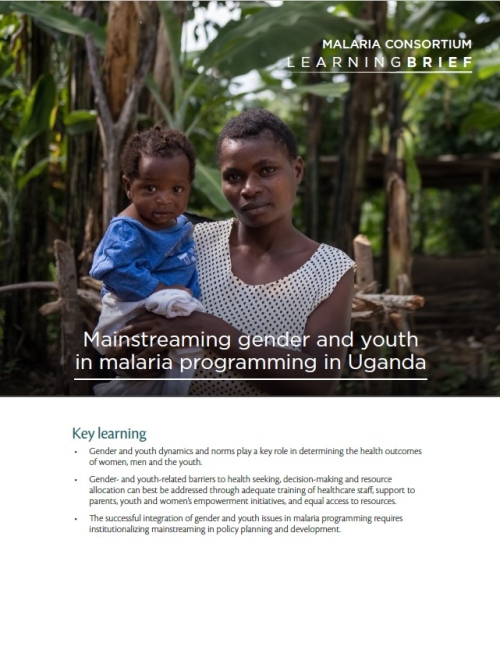Mainstreaming Gender and Youth in Malaria Programming in Uganda
According to the World Health Organization, gender norms, roles and behaviors significantly influence how women, men, and young people react to health challenges, access health services, and how health systems respond to their needs. A thorough understanding of youth- and gender-related dynamics of health seeking, decision-making, and resource allocation — and their integration into programming — is critical for effective malaria control and prevention. This learning brief offers guidance and shares learning with malaria programs in Uganda and sub-Saharan Africa on integrating measures that address gender- and youth-related barriers.
Source: Malaria Consortium
Date of Publication: October 27, 2022

